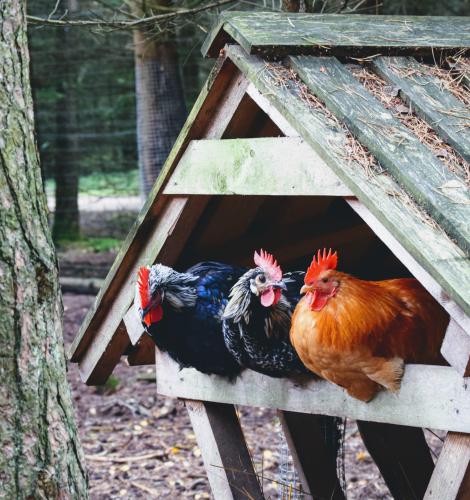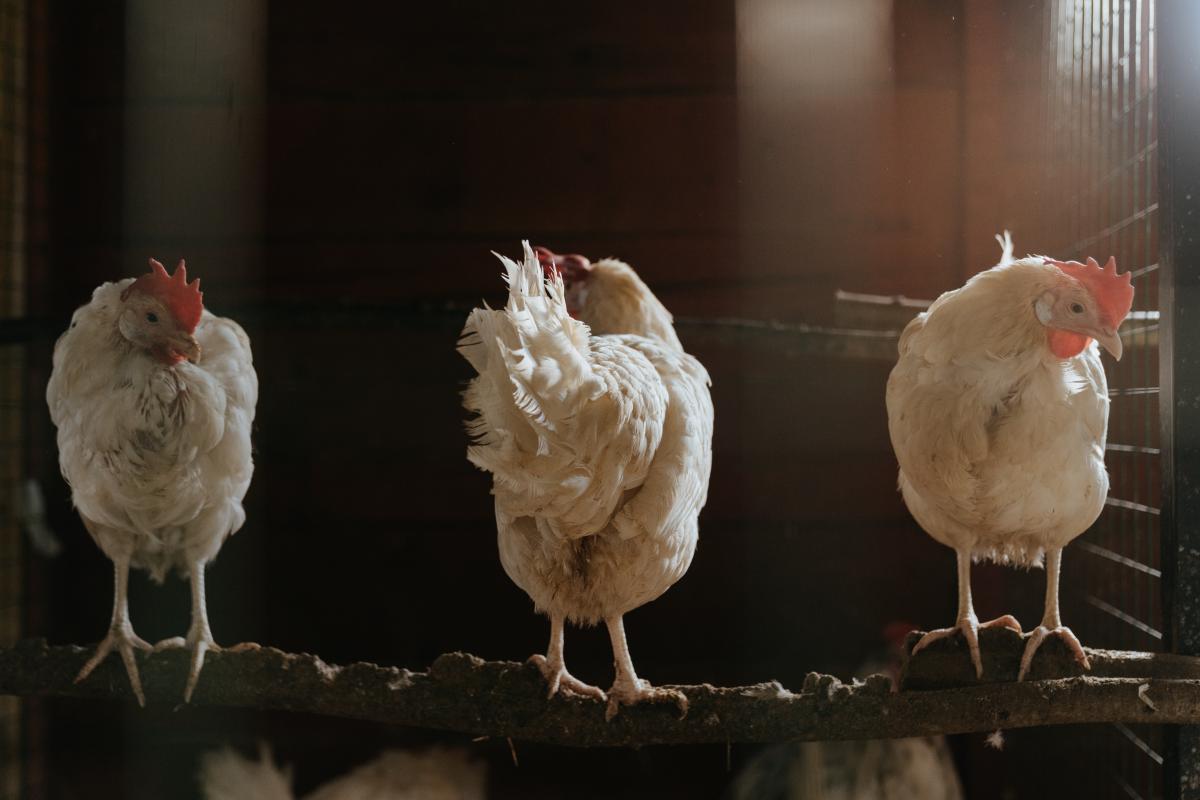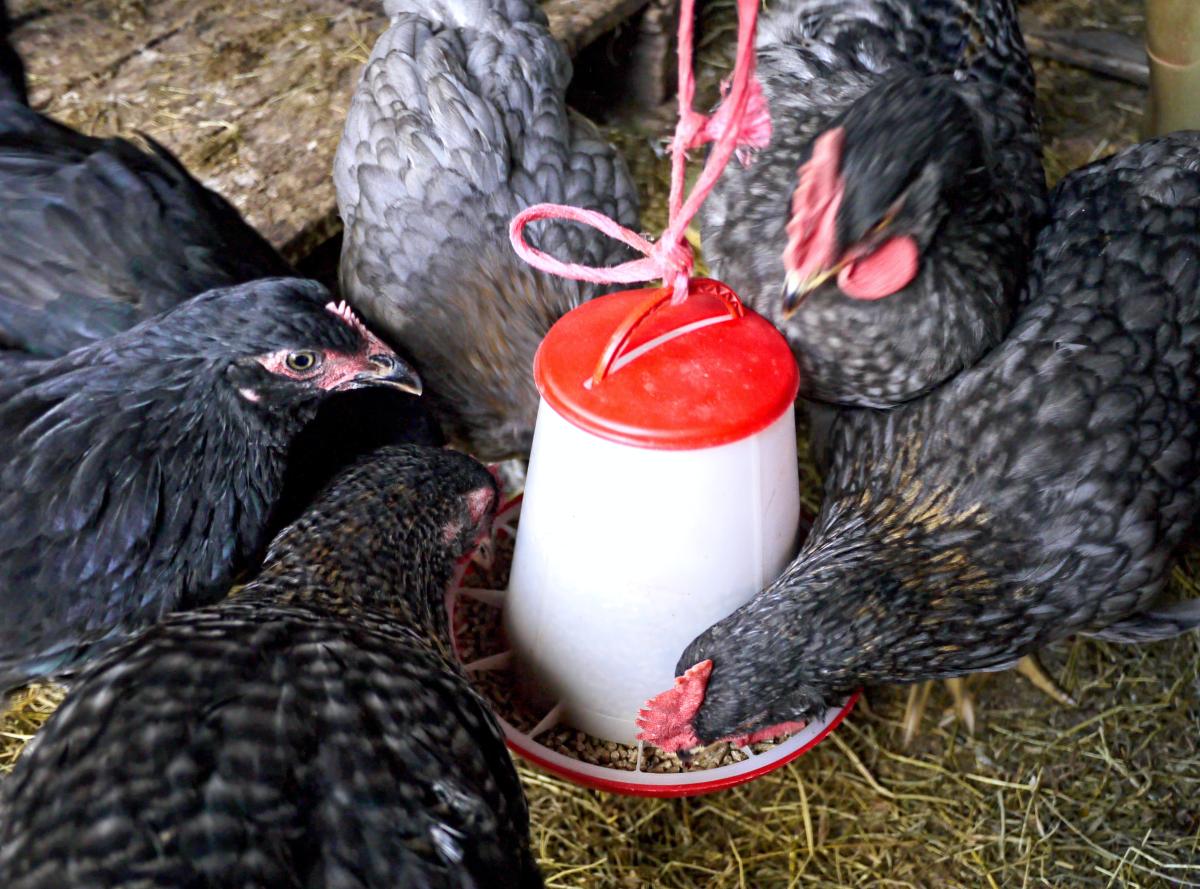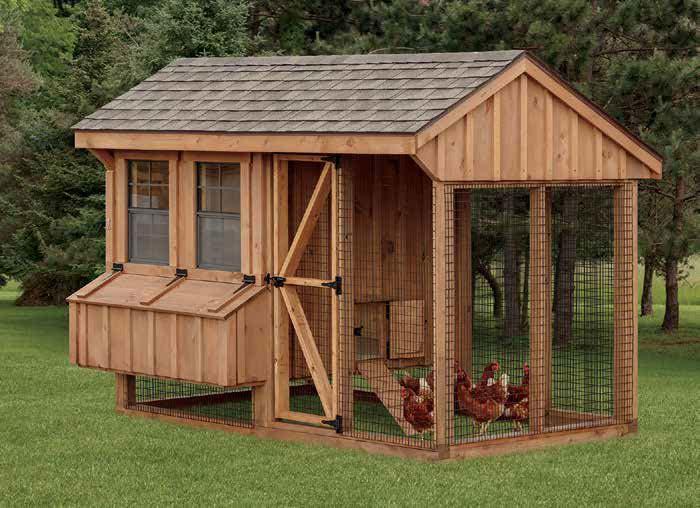
Creating the perfect chicken coop for your flock is no simple task. Aside from finding the right size, style, and level of security, there are many additional accessories and equipment that you'll need. To make this task easier, we’ve compiled a list of 7 chicken coop must-haves. Keep reading to learn more about what items chicken coops need.
1. Nesting Boxes
Chickens need a designated spot to lay their eggs; otherwise, they’ll choose whichever nook and cranny they can find. This can lead to broken eggs in your coop and a frustrating scavenger hunt every day. Nesting boxes create clean, comfortable spots for egg-laying that protect eggs and make them easy to collect. Additionally, with your hens’ eggs in one place, you can effortlessly keep track of increases or decreases in egg production and your flock’s health.
Nesting box location is an important factor in ensuring effectiveness and use. They should be located away from perches and roosts to stay clean and prevent gathered droppings. If nesting boxes aren’t clean, your chickens are less likely to use them to lay eggs. When choosing a type of nesting box for your coop, we recommend poly nesting boxes as they’re durable and easy to clean. To make life easier for you, Space Makers offers the option to add poly nesting boxes to any chicken coop you buy. You will need 1 nesting box for every 4 to 5 chickens; however, don’t be surprised if your hens have a favorite box they all prefer using.
2. Nesting Box Bedding & Padding
Your chickens need access to fresh, clean bedding to stay happy and healthy. If a nesting box has dirty bedding, your chickens may choose to lay their eggs outside the boxes, leading to cracked or hidden eggs. Popular loose bedding materials include straw, wood shavings, and sand. One downside of these traditional materials is the ease with which they can be kicked around by your chickens, creating a mess and breaking eggs.
Alternatively, nesting box pads are difficult for chickens to remove and provide plenty of padding for eggs. These inserts can also save time and money with reusable, easy-to-clean options. In contrast to loose bedding, nesting pad inserts can easily be replaced when dirty. Some chicken owners swear by nesting box inserts, while others stick with loose bedding. What you choose depends on you and your chickens’ preferences.
 3. Roosts & Perches
3. Roosts & Perches
Roosts and perches are essential parts of any chicken coop. Chickens instinctively seek out high perches when resting to stay safe from ground-dwelling predators. This is innate behavior that applies to all chickens, including those kept in coops. That being said, common behavior isn’t the only reason to add roosts and perches to your chicken coop. Roosts and perches keep chickens from sleeping in nesting boxes, which in turn prevents soiled bedding, the spread of diseases, and a decrease in egg production.
To keep your hens happy and their egg production up, Space Makers includes a nesting bar standard in all chicken coop interiors. If you wish to add additional roosting bars, ladders, and perches outside the coop, you can easily use items you already have to create your own.
4. Enrichment Toys
Mental stimulation and enrichment toys can oftentimes be overlooked when setting up a chicken coop. Adding toys keeps chickens mentally occupied and prevents boredom. This in turn helps reduce anxious and aggressive behaviors like feather picking, pecking, and bullying. Some toys and mentally stimulating activities you can include in your chicken coop include the following:
- Chicken swings kept low to the ground
- Treat and food dispensers
- Vegetables and fruit hanging from string, nets, or skewers
- Mini xylophones and bells for pecking
- Reflective, shiny objects like CDs and mirrors
- Shredding and chewing toys
Enrichment toys and activities aren’t as important for free-range chickens that can forage and explore outside the coop. However, chickens living in a coop and enclosed run will greatly benefit from additional mental stimulation and enrichment. Best of all, there are numerous cheap DIY chicken toys you can make for your flock with supplies you already have!
 5. Feeders & Waterers
5. Feeders & Waterers
Feeders and waterers are obvious necessities when creating a list of chicken coop must-haves. While you know your chickens must always have access to fresh water and food, you may be unsure what type of containers to choose. The best feeders and waterers are ones that your chickens can’t stand in. Containers that chickens can stand in will quickly become polluted with droppings and dirty bedding.
Feeders and waterers that hang and have port openings are ideal options that reduce waste and stay unpolluted. Additionally, if your chicken coop has electricity, heated waterers are great upgrades for colder climates. With a heated waterer, you don’t have to worry about your chickens' water freezing in the winter.
6. Lighting
Installing interior lighting in your chicken coop is more than just a convenient addition for navigation. Interior lighting helps with egg production during the winter months when days are shorter and your chickens get less sunlight. If your chicken coop doesn’t have electricity, solar lights work just as great.
Make sure all forms of lighting inside your coop are on a timer or are turned off at night. If you keep coop lighting on all night, your chickens can get too much light. In the winter, light timers should be set for 14 to 16 hours to mimic the amount of sunlight chickens would have in warmer seasons. Additionally, a motion sensor light is a useful addition to your coop’s exterior. Installing a motion sensor light outside your chicken coop, whether solar-powered or electric, will help scare away predators. To help you save on time and money, all of Space Makers’ chicken coops come with options for electric or solar-powered lighting packages.
7. Diatomaceous Earth
While not totally essential, food-grade diatomaceous earth (DE) can be a beneficial addition to your coop. Diatomaceous earth is a powder or sand-like substance made from aquatic organisms. This substance is popular for pest and insect control. Spreading food-grade DE under bedding in your chicken coop can safely kill lice, mites, fleas, and parasites. If you decide to use DE in your coop, always use the food-grade version. Non-food-grade DE, also known as “filter grade,” is used for filtering water and is toxic to humans and animals.
While DE can be extremely useful, it may cause dryness and respiratory issues. When you first use DE in your coop, regularly check your chickens for skin, eye, or respiratory reactions. There are mixed opinions on whether or not chickens can eat food-grade DE or have direct contact with it in dust baths. To decide if using food-grade DE is right for your flock, speak with a poultry veterinarian for further advice.
 Make Sure Your Coop is Secure
Make Sure Your Coop is Secure
While there are many supplies and accessories that will keep your chickens healthy and content, your flock’s safety ultimately comes down to their coop’s level of security. Chicken coops at Space Makers are crafted with reliable components and materials to keep your chickens safe. Standard chicken coop features include lockable doors, durable siding, elevated frames, and enclosed runs.
Chicken Coop Customization & Additional Features
Space Makers’ chicken coops can be fully customized to include what’s essential to your unique flock. These stylish and functional coops come with high-quality add-ons for maximized comfort, security, and ease of maintenance. These additions include the following:
- Finished interiors
- Automatic chicken doors
- Poly nesting boxes
- Easy-to-clean epoxy flooring
- Litter trays
- Wire-covered windows
- Wheels for transporting
- Heated roosts
- Exhaust fans
- Gable vents
- Clean-out lids
- Solar packages
- Electrical packages
You can further customize your chicken coop with weathervanes, cupolas, and custom colors that match your other buildings.
Interested in a custom or pre-built chicken coop from Space Makers Sheds? Speak with a member of our team today or find out which type of chicken coop is right for you!